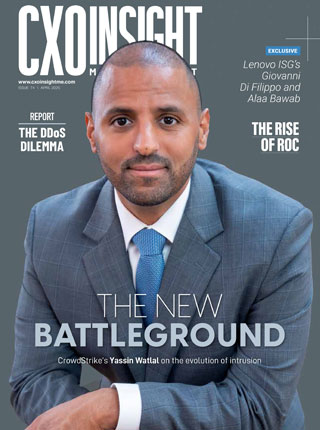
What inspired you to start Secure Domains?
DNS plays a critical role in cybersecurity and the cyber kill chain, yet it remains an overlooked vulnerability. Many cybersecurity vendors do not effectively secure DNS, leaving a significant gap. Recognising this, we founded Secure Domains to address this challenge.
Additionally, compliance with local regulatory requirements, particularly around data residency and sovereignty, was a key driver. We built a complete cloud infrastructure within the UAE, covering all aspects—processing, logging, and security.
My co-founder and I spent seven to eight years working together in our previous organisation, gaining deep expertise in DNS security. We saw a strong use case and recognised that we had the talent and capability within the region to create a truly impactful solution.
How do you differentiate from other cybersecurity providers?
We focus exclusively on DNS security, unlike traditional cybersecurity vendors that provide broad-spectrum solutions like data loss prevention and encryption.
Most providers treat DNS as a “best-effort” service rather than a security protocol. However, DNS is a critical component in every cyberattack, as attackers use it to communicate with command-and-control centres.
By embedding intelligence into DNS, we block threats early in the attack lifecycle, preventing them from spreading across networks and causing damage.
How does Secure Domains transform DNS into a cybersecurity tool?
DNS has traditionally been used for basic internet connectivity. We enhance it with intelligence, threat feeds, and Indicators of Compromise (IOCs) to turn it into a powerful cybersecurity tool.
Our platform can determine when to allow or block connections based on real-time threat analysis, making DNS an integral part of an organisation’s security strategy rather than just a network service.
What challenges has Secure Domains faced so far?
As a young company—launched at the end of last year—our biggest challenge is market awareness. However, once organisations see the DNS security gap firsthand, they quickly recognise its importance.
The crowded cybersecurity market, with various vendors promoting different narratives, sometimes leads to customer confusion. However, with the right approach and go-to-market strategy, we are confident in securing major projects.
What is your go-to-market strategy for the GCC and MENA regions?
We began in the UAE, Qatar, and Saudi Arabia, with plans to expand across the GCC and into Africa.
To accelerate growth, we are hiring more sales and pre-sales resources while onboarding regional partners. We are also engaging with Managed Service Providers (MSPs) and Managed Security Service Providers (MSSPs), as they represent the future of cybersecurity. Our platform is multi-tenant, MSP-friendly, and supports white-labeling, making it an attractive offering for service providers.
What are your key differentiators compared to other DNS security vendors?
Our platform is a true multi-tenant cloud solution, allowing enterprises to manage subsidiaries and MSPs to handle multiple customers from a single interface—something most DNS providers have yet to achieve.
We also integrate AI and machine learning into our DNS engine, providing advanced threat detection and making our solution one of the most secure and comprehensive in the market.
What are Secure Domains’ growth plans for the next few years?
We aim to establish a strong presence across the Middle East and Africa, expanding from the UAE, Saudi Arabia, and Qatar into Egypt, North Africa, and beyond.
On the technology front, while we currently operate as a cloud-based solution, we are developing an on-premises option for sectors like defence and critical infrastructure that require local control.
Our roadmap includes several innovations, which we will announce soon.










Discussion about this post